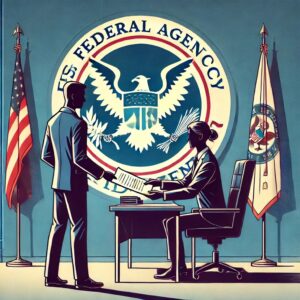 As a federal employee, you enjoy strong job protections, but wrongful termination can still happen. This guide helps you understand what wrongful termination means for federal workers and explains what actions you can take if you’re fired unlawfully. If your employer suddenly terminates you without a valid reason, you need to understand your rights and the steps you can take. Federal employment law can be complex, but knowing the basics helps you navigate it.
As a federal employee, you enjoy strong job protections, but wrongful termination can still happen. This guide helps you understand what wrongful termination means for federal workers and explains what actions you can take if you’re fired unlawfully. If your employer suddenly terminates you without a valid reason, you need to understand your rights and the steps you can take. Federal employment law can be complex, but knowing the basics helps you navigate it.
Key Reasons Employees Face Wrongful Termination
Employers wrongfully terminate a federal employee when they fire them for illegal reasons. Unlike in the private sector, where most employees are “at-will,” federal employers can only terminate employees for “just cause.” They must provide a legitimate, non-discriminatory reason and follow proper procedures.
Common reasons employers wrongfully terminate federal employees include:
- Discrimination: Employers cannot fire you based on race, gender, age, disability, sexual orientation, religion, or national origin.
- Retaliation for Whistleblowing: If you report illegal activities or misconduct and then get fired, this counts as retaliation, which the Whistleblower Protection Act protects against.
- Contract Violations: Employers may wrongfully terminate you if they breach the terms of your employment contract.
- Denial of Due Process: You have the right to a fair process before termination, including the opportunity to respond to allegations.
- Political Affiliation: Your employer cannot fire you for lawful political activities outside of work.
- Failure to Accommodate Disabilities: The law requires employers to provide reasonable accommodations for employees with disabilities; failing to do so could lead to wrongful termination.
- Violations of Public Policy: Employers wrongfully terminate you if they fire you for refusing to engage in illegal activities or for taking legally protected actions.
- Selective Enforcement: Employers may wrongfully terminate you by using policies as an excuse to fire you for personal motives rather than legitimate reasons.
Warning Signs You May Face Wrongful Termination
Look out for these red flags that may indicate wrongful termination:
- Sudden changes in your work environment or increased scrutiny.
- Unjustified negative performance reviews or disciplinary actions.
- Exclusion or isolation without reason.
Federal Employee Rights Against Unlawful Dismissal
Federal laws protect you against wrongful termination. Key protections include:
- Anti-Discrimination Protections: Laws like the Civil Rights Act protect you from hiring, firing, and promotion discrimination.
- Whistleblower Protections: The Whistleblower Protection Act shields you from retaliation if you report wrongdoing.
- Due Process Rights: You have the right to a fair process before termination.
- Reasonable Accommodations for Disabilities: The Rehabilitation Act requires employers to provide reasonable accommodations if you have a disability.
- Collective Bargaining Rights: Some federal employees can use collective bargaining agreements to protect against unfair termination.
Benefits of Hiring a Federal Employment Attorney
Federal employment law is complex, and a lawyer can help you understand your situation, gather evidence, and represent you effectively. A federal employment lawyer can:
- Offer expertise in federal employment law.
- Evaluate your case’s merits.
- Guide you through administrative processes.
- Help you collect relevant evidence.
- Negotiate on your behalf.
- Represent you during hearings or appeals.
Conclusion
If you believe your employer wrongfully terminated you from your federal job, consult a federal employment lawyer to explore your options and protect your rights.


